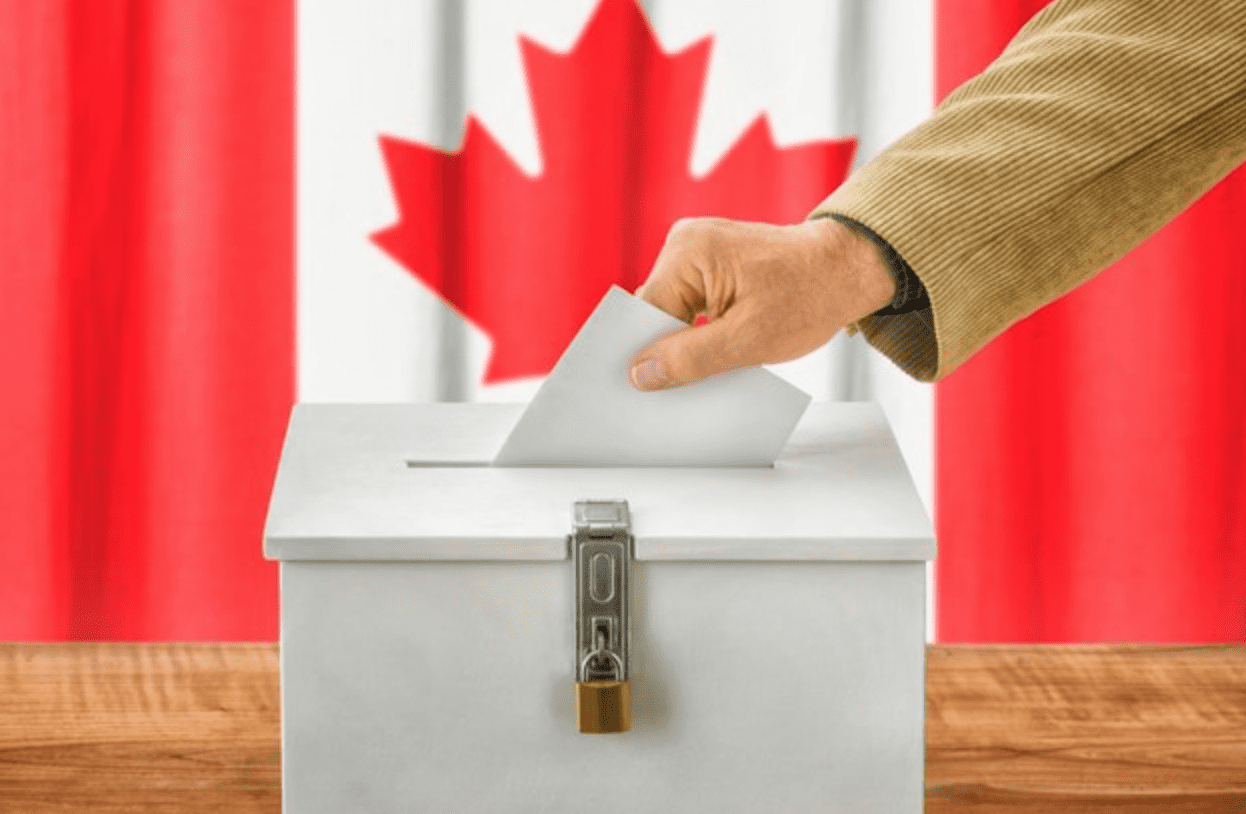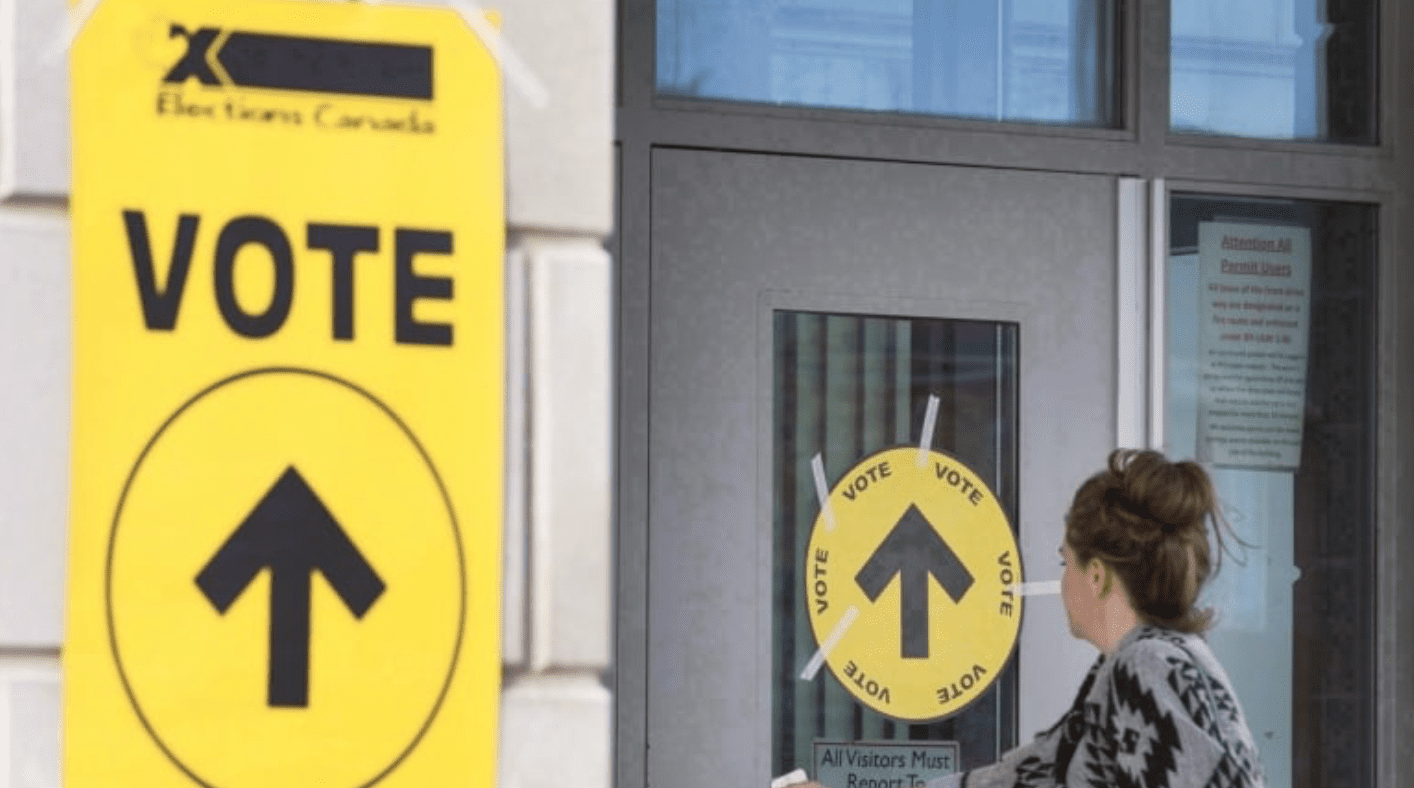For weeks, we have endured the punditocracy declare that this is an election about "nothing," and pulling out the same tired cliché that this is a "Seinfeld" election, which has been the media line for several elections, federal and provincial, even though its pop culture relevance is rapidly fading. While I won't deny that there is a listless quality to this election, owing more to the fact that it was only triggered by the timing of the fixed election date rather than there being An Issue to be put to the voting population, there are nevertheless plenty of actual issues for voters to mull over, and for which we should actually be having a conversation about. And yet, a certain amount of intellectual laziness and dare I say a lack of intestinal fortitude to discuss something beyond the menace of a deficit pervades the establishment discourse.
Let's start with the deficit question. So much digital ink gets spilled on the pearl-clutching about whether or not a party will reach a balanced budget that it ignores the fact that this isn't the mid-90s and we're not facing a debt crisis in this country. Yes, there is fiscal prudence, but there is also the reality of the sustainability of certain deficits in the current fiscal context, and whether that spending is being used on something that will have a lasting economic impact such as productivity gains, meaningful poverty reduction that will have longer-lasting gains for the country, or even something like better childcare options, which we have proof has economic gains in this country. Nevertheless, the discussion remains stuck at the level of whether there will be a deficit or not, rather than the fact that there is minimal impact to deficit reduction in the short and medium term when in a low-interest-rate environment, new government debt is virtually free and that money could have a greater medium and long-term impact.
There is the fact that the attempts to make this election about "affordability" is built upon a sham premise, because that study showing that Canadians are a mere $200 away from insolvency at the end of every month is based on some particular assumptions that the parties ignore. So they frame their promises around these supposed affordability anxieties, where the data show that the situation is not actually reflective of what they're saying. The fact that there was almost no actual delving into this statistic which rapidly became a truism has allowed parties to let the rhetoric they've adopted to suit it go unchallenged, which has largely allowed this attempt to wedge the framing device to be uncontested.
To that end, what debate there has been around the proposals for tax measures has largely been superficial between the two main parties, which has been to the detriment of the coverage of the campaign. Because the top-line numbers remain similar, there has seemed to be this shrugging in the discussion that says "Their plans are similar! Who can tell the difference?" which is both wrong and irresponsible, whether that's because of the pervasive sense of "math is hard" among many journalists, or whether there is a discomfort with reading the analysis of how those measures are different. Nevertheless, there are significant differences in how the plans work and how the measures affect different income levels that is largely being glossed over, and as a result, the real analysis that we're seeing has been from economists crunching the numbers over Twitter than in the mainstream discourse.
Climate change is another major issue in this election, but it's one that is getting shockingly little interrogation. While most of the parties are making grand promises about how much they'll lower carbon emissions the Conservatives excepted there has been virtual silence in pressing the parties for details in terms of how they plan to achieve those reductions, particularly given that the environment is a shared jurisdiction with the provinces, and we've seen the battles that the current government has had with some of those provinces about getting the very basics of carbon pricing implemented. This makes a number of those promises from the Greens and the NDP, in particular, to be highly suspect in terms of their feasibility, particularly at the pace they want to make the reductions (not to say that it's not necessary just that it's easier said than done). Sure, there have been interviews with party leaders and spokespeople about the plans, but there seems to be little pushback when they handwave around those implementation questions. But again, implementation matters, and that's what we should keep pressing in this election.
These are just a few examples of the things that do matter that are being put on offer to Canadians, but as soon as they're bought up, there has been a collective shrug, probably because nothing seems particularly sexy or because there isn't enough of an American political hook (given that everyone, media included, seems intent on carrying on with the Washington DC LARP). But there is a significant choice being offered in this election, which boils down to a party that has a reasonably ambitious climate plan with a feasible implementation strategy, and whose use of deficit financing is geared toward meaningful poverty reduction or a party that is deficit-financing tax cuts that disproportionately benefit the wealthy for little economic impact, and for whose climate plan is a transparent attempt at doing absolutely nothing in the hopes that the good times will come back again to Alberta rather than accepting that we are in an era of prolonged low oil prices and that perhaps it's time to seriously think about how to transition the economy. Add to that ways in which the parties are treating serious issues like race, Indigenous reconciliation, and Canada's place in the world, and there is actually a stark choice on offer, and the starkness of that choice is not being laid out as such by the mainstream voices. It's not an election about nothing, and as we approach election day, we should be pushing back against attempts to describe it as such.
Photo Credit: Halifax Today








